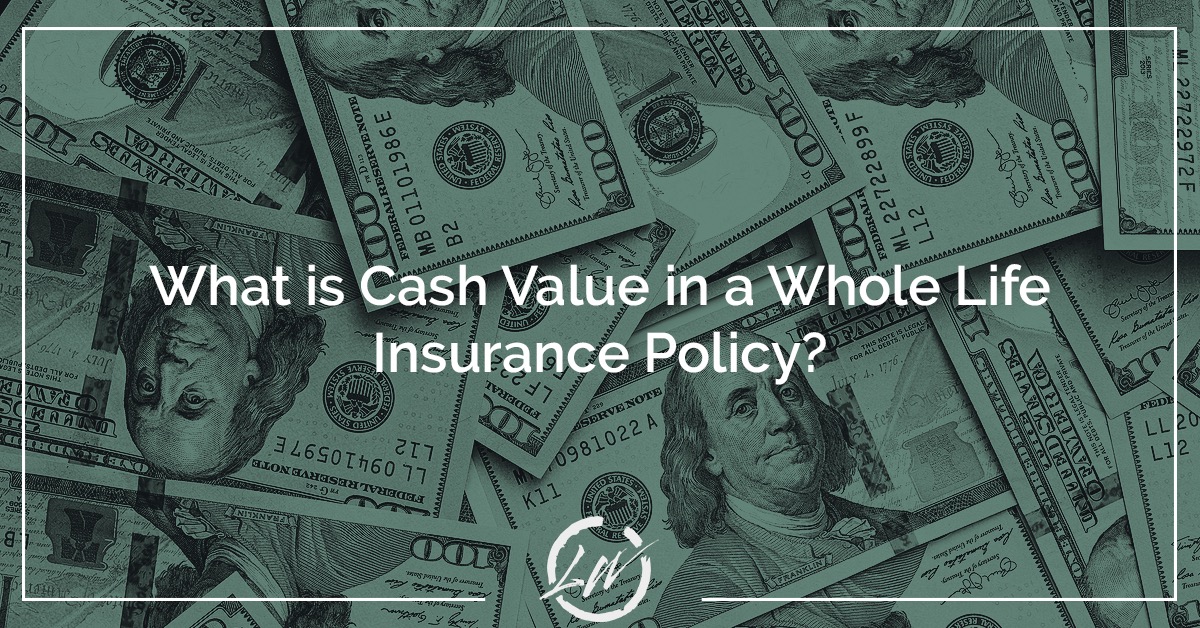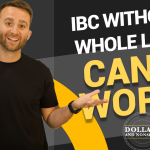When it comes to financial planning and securing your family’s future, life insurance is a crucial tool in your arsenal. While term life insurance offers straightforward protection for a specific term, whole life insurance takes it a step further by providing both protection and an intriguing cash-building component known as “cash value.” In this comprehensive guide, we’ll explore what cash value is, how it works, and why it can be a valuable asset in your financial portfolio.
What is Cash Value in Whole Life Insurance?
At its core, cash value is a savings or investment component attached to certain types of life insurance policies, with whole life insurance being the most prominent example. Unlike term life insurance, which purely offers a death benefit, whole life insurance combines a death benefit with a cash value component. This cash value grows over time and can be accessed, borrowed against, or used to enhance your overall financial strategy.
How Cash Value Accumulates
Cash value in a whole life insurance policy accumulates in several ways:
- Premium Payments: A portion of each premium payment you make goes toward the cash value. This is one of the key differences between whole life and term life insurance.
- Guaranteed Interest: Whole life policies typically offer a guaranteed minimum interest rate on the cash value. This ensures that your cash value grows steadily, regardless of market fluctuations.
- Dividend Earnings: Some whole-life policies, known as participating policies, may pay dividends. These dividends can be used to purchase additional coverage, deposited into the cash value, or taken as cash.
How Cash Value Benefits Policyholders
Now that we understand what cash value is and how it accumulates let’s delve into why it’s valuable:
- Access to Funds: One of the primary benefits of cash value is that it provides you with access to funds within the policy. You can withdraw a portion of the cash value or take out a policy loan. These withdrawals and loans are often tax-free and can be used for various purposes, such as covering unexpected expenses or funding opportunities.
- Liquidity: Cash value adds liquidity to your financial portfolio. Unlike some other investments, you can access your cash value without penalties or market restrictions. This can be especially valuable during emergencies.
- Tax Advantages: The growth of cash value within a whole life policy is typically tax-deferred. This means you won’t pay taxes on the cash value’s growth as long as it remains within the policy. Additionally, policy loans are generally tax-free, providing a tax-efficient way to access funds.
- Legacy Planning: The death benefit of a whole life policy ensures that your loved ones receive a tax-free inheritance. This can be a significant part of your estate planning, offering financial security to your beneficiaries.
- Asset Protection: In many states, the cash value within a life insurance policy is protected from creditors. This means that even in challenging financial times, your cash value remains shielded.
- Guaranteed Growth: Whole life policies come with guaranteed minimum interest rates. This provides stability and predictability in your cash value’s growth, making it a reliable part of your long-term financial strategy.
- Diversification: Cash value within a whole life insurance policy can serve as a conservative, stable component of your overall investment portfolio. It complements riskier assets like stocks and bonds, adding a layer of diversification.
How to Use Cash Value Wisely
While cash value offers numerous advantages, it’s essential to use it wisely to maximize its benefits. Here are some strategies for leveraging cash value effectively:
- Emergency Fund: Use the cash value as an emergency fund. It can be a reliable source of funds when unexpected expenses arise.
- Financing Opportunities: Consider using cash value to finance opportunities such as starting a business, purchasing real estate, or funding education. The interest rates on policy loans are often favorable compared to traditional lenders.
- Retirement Income: Some policyholders choose to use their cash value as a source of retirement income. This can be done by taking policy withdrawals or loans during retirement, providing a tax-efficient income stream.
- Estate Planning: If you have a sizeable estate, the death benefit from your whole life policy can help cover estate taxes and ensure your heirs receive their inheritance intact.
Cash value in a whole life insurance policy is more than just a perk; it’s a powerful financial tool that offers liquidity, tax advantages, and growth potential. Whether you’re looking to protect your family’s financial future, build wealth, or achieve specific financial goals, understanding and utilizing the cash value component of your whole life policy can be a smart move. As with any financial decision, it’s crucial to consult with a financial advisor to tailor a strategy that aligns with your unique circumstances and objectives. So, consider this versatile financial instrument as you plan for your future and secure your financial legacy.
The Role of Cash Value in Infinite Banking: A Powerful Financial Strategy
Cash value is a central component of the Infinite Banking Concept (IBC). In the context of Infinite Banking, cash value plays a crucial role as it forms the foundation for the strategy. Let’s explore how cash value relates to Infinite Banking:
1. The Source of Infinite Banking Funds:
Infinite Banking revolves around using a specially designed whole life insurance policy as a source of financing for various purposes. The cash value within this policy is the source of funds that policyholders can access. Instead of relying on traditional banks or lenders, individuals practicing Infinite Banking use the cash value in their insurance policies to finance investments, purchases, and other financial needs.
2. Policy Loans as a Key Mechanism:
Within the Infinite Banking Concept, policyholders have the option to take out policy loans against the cash value of their whole life insurance policies. These loans are typically available at a competitive interest rate and can be a powerful way to access funds. Importantly, the cash value in the policy serves as collateral for these loans. As the policyholder repays the loans, the money flows back into the policy’s cash value, creating a cycle of borrowing and repaying.
3. Growth and Safety of Cash Value:
Cash value in a whole life insurance policy is designed to grow over time. It often includes guaranteed interest rates, which provide a stable and predictable rate of growth. This growth is crucial within the context of Infinite Banking, as it ensures that the pool of funds available for loans and other financial transactions continues to increase. Additionally, the cash value is protected from market fluctuations, providing a level of safety not found in many other investment options.
4. Tax Advantages:
Cash value within a whole life insurance policy, including the gains from policy loans, is often treated with favorable tax treatment. Generally, the growth is tax-deferred, and policy loans are typically tax-free. This tax efficiency enhances the effectiveness of the Infinite Banking strategy, as it allows policyholders to access funds without incurring immediate tax liabilities.
5. Versatility in Financial Transactions:
Cash value offers flexibility in how policyholders can use the funds. Whether it’s for investments in businesses, real estate, or other opportunities, or simply for personal financing needs, the cash value can be used for various financial transactions. This versatility aligns with the Infinite Banking philosophy of becoming your own source of financing.
6. Legacy and Long-Term Wealth Building:
Cash value also plays a role in legacy planning. The death benefit of the whole life insurance policy ensures that your heirs receive a tax-free inheritance. By continuously growing the cash value and using it strategically during your lifetime, you can pass on a more substantial financial legacy to your loved ones.
Cash value is an integral component of the Infinite Banking Concept, serving as the financial engine that powers the strategy. It provides liquidity, growth potential, tax advantages, and flexibility, making it an attractive option for individuals seeking to become their own source of financing and build long-term wealth. However, it’s essential to work with a knowledgeable infinite banking advisor to structure your Infinite Banking plan effectively, as the specific policy design and strategy can vary based on individual goals and circumstances.
Need more information?
We offer plenty of resources to help you get started with infinite banking and leveraging cash value.
- Take our free IBC course
- See our IBC learning videos
- Read our Living Wealth blog
- Check out our infinite banking YouTube channel
- See a list of the best infinite banking books
- Read our in-depth page that answers the most common Infinite Banking Concept questions
- Infinite banking concept glossary of terms
- Contact us






